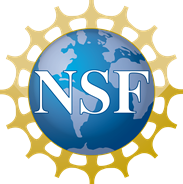
November 26 - December 1, 2023
Boston, Massachusetts
Symposium Supporters
2023 MRS Fall Meeting & Exhibit
Symposium SB03-Molecular Biomimetics—Biology Meets Materials Science and Artificial Intelligence at the Molecular Dimensions
Biological hard tissues have been the inspiration for scientists and engineers due to their extraordinary hierarchical structural organization and the resultant multifunctional properties. These natural composites of minerals are formed by proteins and peptides that enable the nucleation and growth of inorganic solids and control the shape of minerals in organisms. Inspired by biology at the lowest dimensional scale, molecular biomimetics utilizes short peptides (solid binding peptides) developed using directed evolution with affinities to inorganics. The last two decades have seen the development of this fledgling field at the cross-sections of molecular biology/genetics, materials science/engineering, and computational sciences/informatics. This symposium will bring materials scientists, condensed- and soft-matter physicists and chemists, molecular biologists, and geneticists with computational and machine intelligence scientists in a truly convergent science platform to review the evolution of the molecular biomimetics concepts and approaches during the last decades and explore its widening potential, both in fundamentals and practical implementations into the future, including materials and bio/physico/chemistry of molecular recognition and signal transduction, quantum biology, genetically enabled bio-electronic,-magnetic and -photonic materials, sensors, and logic devices as well as mainstream applications in bone and dental tissue engineering, biomedical materials coatings, and as peptide-functionalized drugs and delivery systems.
Topics will include:
- Lessons from Biology at the Molecular Dimensions
- High throughput Approaches for Selection and Screening of Peptides
- Self-assembled Peptide Nanostructures
- Molecular Bioelectronics, Biophotonics, and Biomagnetics
- Peptide-guided Machinery for Biosensing, Energy Harvesting, and Green Synthesis
- Repair and Regeneration of Biological Hard Tissues
- Catalytic Peptides for Bio/Nanotechnology and Medicine
- Chimeric Peptides – Tools for materials and medicine
- Machine Learning Approaches for the Predictive Design of Soft Bio/Nano Interfaces
- Computational Modeling of Peptide-Solid Interactions
Invited Speakers:
- Nurit Ashkenasy (Ben-Gurion University of the Negev, Israel)
- David Baker (University of Washington, USA)
- Francois Baneyx (University of Washington, USA)
- Bikramjit Basu (Indian Institute of Science, Bengaluru, India)
- Stefano Corni (Università degli Studi di Padova, Italy)
- Nora de Leeuw (University of Leeds, United Kingdom)
- James De Yoreo (Pacific Northwest National Laboratory, USA)
- Takeshi Fukuma (Kanazawa University, Japan)
- Paula Hammond (Massachusetts Institute of Technology, USA)
- Hendrik Heinz (University of Colorado Boulder, USA)
- Christian Hellmich (Technische Universität Wien, Austria)
- Dinesh Katti (North Dakota State University, USA)
- Alvaro Mata (University of Nottingham, United Kingdom)
- Rajesh Naik (Wright-Patterson Air Force Base, USA)
- Roger Narayan (North Carolina State University, USA)
- Carole Perry (Nottingham Trent University, United Kingdom)
- Bryan Reed (Integrated Dynamic Electron Solutions, Inc., USA)
- Ram Samudrala (University at Buffalo, The State University of New York, USA)
- Mehmet Sarikaya (University of Washington, USA)
- Kiyotaka Shiba (Japanese Foundation for Cancer Research, Japan)
- Candan Tamerler (University of Kansas, USA)
- Tiffany Walsh (Daekin University, Australia)
- Ulrike Wegst (Northeastern University, USA)
Symposium Organizers
Kalpana Katti
North Dakota State University
Center for Engineered Cancer Testbeds
USA
Hanson Fong
University of Washington
Department of Materials Science and Engineering
USA
Yuhei Hayamizu
Tokyo Institute of Technology
Materials Science and Engineering
Japan
Deniz Yucesoy
Izmir Institute of Technology
Department of Bioengineering
Turkey
Topics
2D materials
biomimetic
combinatorial
interface
self-assembly
tissue




-2.tmb-mtg_rel_ad.png?Culture=en&sfvrsn=a4240c09_1)

























